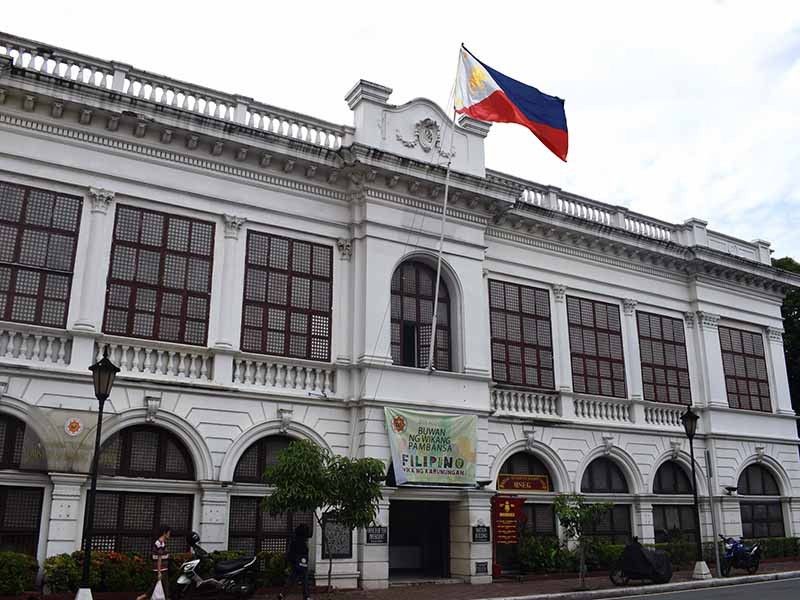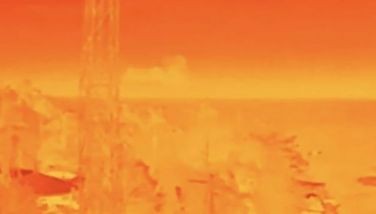KWF urged to review policy banning books it decided are 'subversive'

MANILA, Philippines — Groups are urging the Komisyon sa Wikang Filipino to review its board's decision to pull out books it has decided are "subversive" for supposedly being "anti-government" as the rights commission cautioned against government overreach.
The KWF has issued a memo denouncing several titles, which it also described as "anti-Marcos" and "anti-Duterte". The KWF board also distanced itself from the titles, saying these were commissioned without authority.
"We encourage the KWF to study this policy through consultations with relevant stakeholders, as well as to go into a further inquiry on the contents of the said publications," Commission on Human Rights Executive Director Jacqueline Ann de Guia said in a statement.
The Book Development Association of the Philippines (BDAP) also underscored that "books are not just essential to a democratic society, but are a mover for our knowledge economy."
Last week, KWF issued an internal memorandum circular to pull out several books, including books by Malou Jacob, Rommel Rodriguez, and Don Pagusara that the agency itself published just last April, from classrooms and libraries for allegedly being "anti-government."
Rodriguez earlier said that the suppression of his work also curtails his freedom to create.
Pagusara, on the other hand, said that the play he wrote is based real-life events during the early years of Martial Law.
KWF cites Anti-Terrorism Act
KWF warned that the five books it identified may violate Section 9 of the Anti-Terrorism Act (ATA) for supposedly encouraging terrorism, but the CHR points out that interpreting provisions of that law should be done with caution "especially if it may be overreaching, and results in possible violation of rights rather than protecting them."
Opposition lawmakers recently filed a bill to repeal the ATA, citing that it was prone to abuse. Right before leaving his post, former national security adviser Hermogenes Esperon Jr. had websites of news organizations blocked even if he failed to cite articles of the ATA he claims they violated.
[READ] Statement of CHR Executive Director, Atty Jacqueline Ann de Guia, on the directive to ban alleged subversive and anti-government publications pic.twitter.com/uFNRNiiN9R
— CHR Philippines (@chrgovph) August 13, 2022
“Under a democracy, there is value in allowing these publications to be publicly available so they may be discussed and even challenged openly if necessary,” the CHR said.
The National Telecommunications Commission in June also blocked several websites, including those of alternative news sites Bulatlat and PinoyWeekly. Bulatlat brought the issue to court, which has issued an injunction on the NTC order. The Quezon City court heald that "any limitation or restriction in the exercise of one’s right, no matter the extent, and for even minimal periods of time, is a form of deprivation, and clearly, a violation of such right."
In 2021, a regional office of the Commission on Higher Education issued a memo urging higher education institutions in the region to remove materials "that contain pervasive ideologies of the Communist-Terrorist Groups (CTGs)" from ther libraries.
Among the books that were removed from libraries of state schools were those related to the peace negotiations with communist rebels.
RELATED: UP library studies faculty: Removal of 'subversive' readings is censorship
‘Internal petty power struggles’
Meanwhile, BDAP also expressed disappointment that the order came from KWF — the national agency that is tasked to develop Philippine languages and advocate the use of the national language.
"We expect level-headed thought and deliberation and not internal petty power struggles,” the association said in its statement Saturday. "Intolerance has no place in government, especially in an agency that should be a prime defender of expression."
The KWF board of commissioners in a statement last week warned that the books allegedly contain “explicit anti-Marcos and anti-Duterte contents.”
It also distanced itself from KWF Chairperson Arthur Casanova, whom they said engaged in contracts without the board’s knowledge.
Casanova said the books passed through the commission's review process and said labelling them as "subversive is a dangerous accusation, which may already be stepping on the boundaries of freedom of expression and academic freedom."
- Latest
- Trending


































